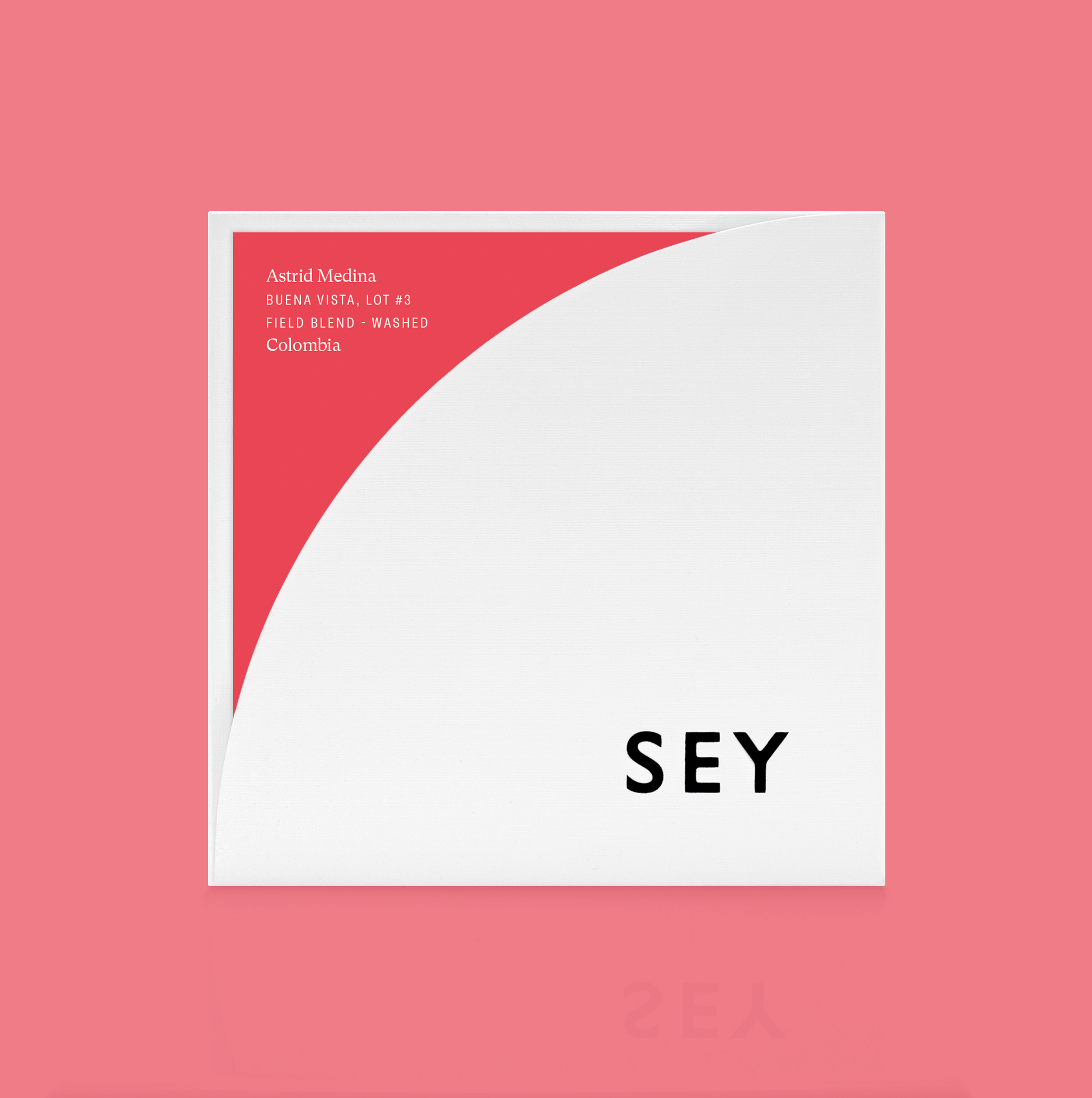
This is the second of six exceptional lots that we purchased from Astrid this season. It’s truly amazing how diverse the flavor profiles from the same farm can be. This lot was stunning in the cup; brimming with articulated white peach, yellow tropicals, and honeysuckle.
Castillo, Caturra, V. Colombia
Gaitania, Planadas, Tolima
2,000 masl
August, 2021
Hand picked at peak ripeness. Floated to further remove defects and depulped on the day of harvest. Dry fermented for 35 hours. Dried on raised beds for 30 days.
ABOUT ASTRID MEDINA
We met Astrid at the first Acevedo Cup we participated in around six years ago. She was traveling with Alejandro Renjifo and his exporting company Fairfield Trading in order to share insights and techniques to producers in the region. She is highly ambitious, and is constantly learning and improving year after year. Her main goals are to continue improving the quality of her coffee while minimizing negative environmental impact. She is especially interested in sustainable farming practices using little or no chemical inputs, and improving soil health through the planting of native plants and trees. She has also started teaching her neighboring producers how to improve their quality and avail themselves to the specialty market. Her contribution to specialty coffee within the region of Gaitania cannot be overstated, and it is a true honor to work with her coffee.
ABOUT THIS FIELD BLEND
This is a field blend of the three most commonly grown varieties in Colombia: Castillo, V. Colombia, and Caturra. Both Castillo and V. Colombia are Catimor hybrids, which give them high disease resistance. Caturra, on the other hand, is a natural mutation of Bourbon, and is very susceptible to disease.
Pricing Details
Farm Gate (Local)
2MM COP/Carga
Farm Gate (USD)
~$5.35/KG
FOB
$9.88/KG
FOT
$12.11/KG
The cost of getting a coffee from cherry to beverage varies enormously depending on its place of origin and the location of its consumption. The inclusion of price transparency is a starting point to inform broader conversation around the true costs of production and the sustainability of specialty coffee as a whole.